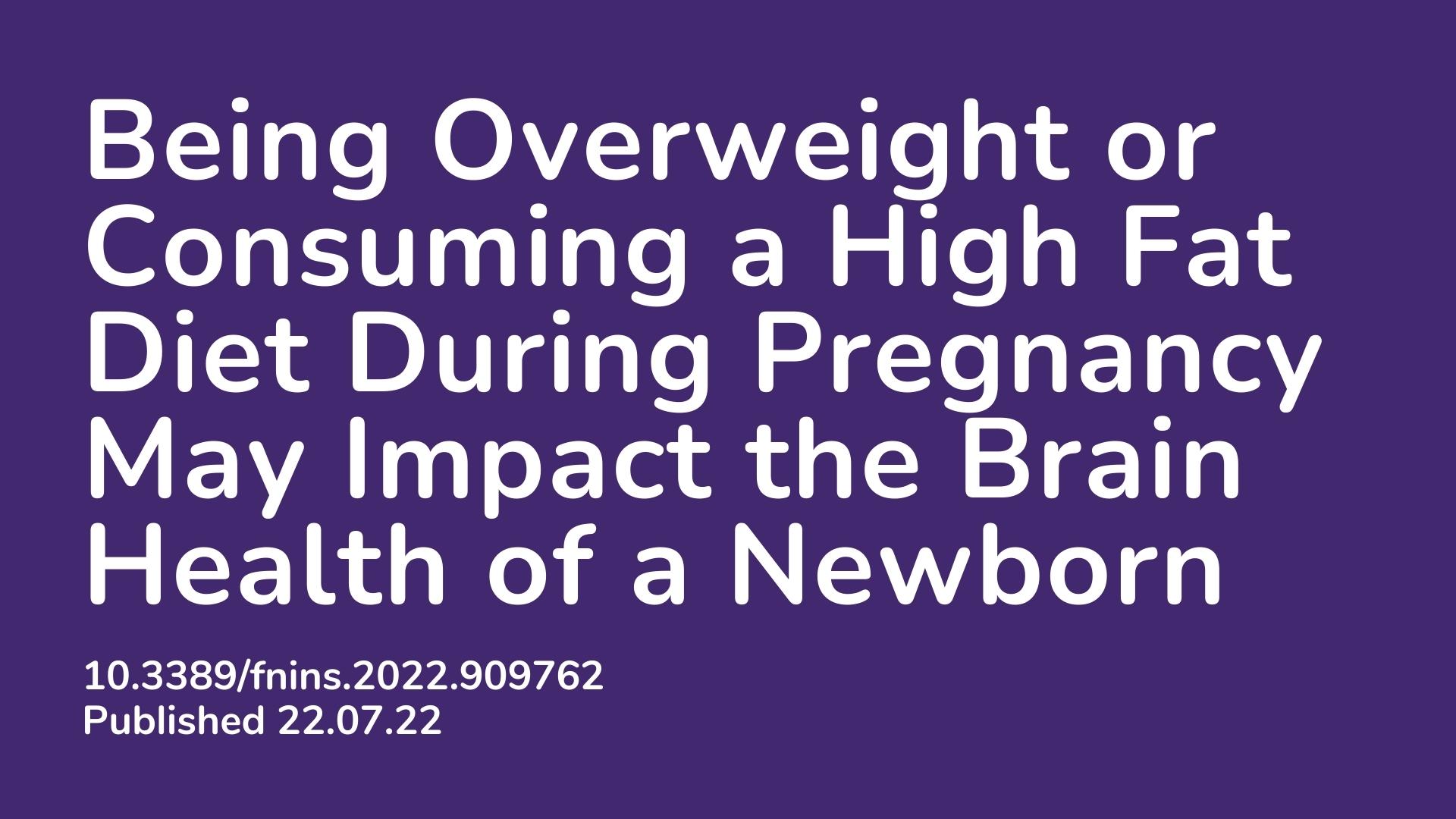Summary: Data shows that the rates of obese and overweight women during reproductive age is increasing which leads to metabolic disorders such as type-2 diabetes and gestational diabetes. These conditions may affect the development of the embryo and the fetus in pregnant women. In this review, the authors explored the impact of a maternal high-fat diet in rodents, before comparing the data to humans. Their data suggests that a high fat diet during pregnancy affects the development of the fetus’ brain which could lead to both prenatal deficits and long-term effects. The increasing prevalence of obesity among women of reproductive age highlights the importance of understanding what role the amount and type of food plays in weight gain and what changes in maternal metabolism and microbiota occur. It’s also critical to understand the role that being overweight plays in inflammation. Both the human and animal studies included in this paper have indicated that maternal obesity has long-term negative effects on the function of the offspring’s brain. The paper also discusses whether it is the absence of fiber, as opposed to a high fat diet, that can be responsible for negative impacts, as a reduction in the production of short chain fatty acids have been implicated in impaired postnatal neurodevelopment of the child due to microbiota dysbiosis.
Abstract:
A maternal high-fat diet affects offspring neurodevelopment with long-term consequences on their brain health and behavior. During the past three decades, obesity has rapidly increased in the whole human population worldwide, including women of reproductive age. It is known that maternal obesity caused by a high-fat diet may lead to neurodevelopmental disorders in their offspring, such as autism spectrum disorder, attention deficit hyperactivity disorder, anxiety, depression, and schizophrenia. A maternal high-fat diet can affect offspring neurodevelopment due to inflammatory activation of the maternal gut, adipose tissue, and placenta, mirrored by increased levels of pro-inflammatory cytokines in both maternal and fetal circulation. Furthermore, a maternal high fat diet causes gut microbial dysbiosis further contributing to increased inflammatory milieu during pregnancy and lactation, thus disturbing both prenatal and postnatal neurodevelopment of the offspring. In addition, global molecular and cellular changes in the offspring’s brain may occur due to epigenetic modifications including the downregulation of brain-derived neurotrophic factor (BDNF) expression and the activation of the endocannabinoid system. These neurodevelopmental aberrations are reflected in behavioral deficits observed in animals, corresponding to behavioral phenotypes of certain neurodevelopmental disorders in humans. Here we reviewed recent findings from rodent models and from human studies to reveal potential mechanisms by which a maternal high-fat diet interferes with the neurodevelopment of the offspring.
Article Publication Date: 22/07/2022
DOI: 10.3389/fnins.2022.909762



